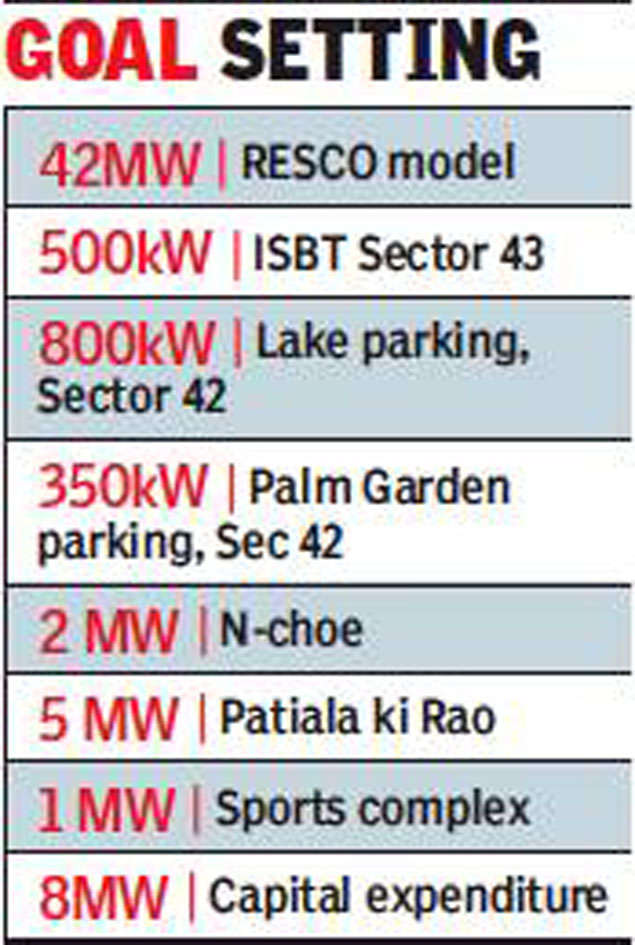
To promote solar energy, UT administrator VP Singh Badnore had approved the RESCO model, in which private companies will install solar plants on private houses
CHANDIGARH: The UT administration has set a self-target of 100MW solar power generation by 2022 even as the ministry of new and renewable energy enhanced the city’s solar power generation target from 50 megawatt (MW) to 69 MW for that year.
The city is already generating 35MW solar power.
Among the key projects are installation of solar plants on private houses under Renewable Energy Service Company Model (RESCO) model; solar power plant worth Rs 4.5 crore at the parking area of the new lake in Sector 42; solar panels in cycle stands of various government schools and a solar plant on N-choe, a seasonal rivulet that passes through Garden of Springs, Sector 53.
To promote solar energy, UT administrator VP Singh Badnore had approved the RESCO model, in which private companies will install solar plants on private houses.
Debendra Dalai, CEO, Chandigarh Renewable Energy, Science and Technology Promotion Society (Crest), told TOI that they have planned a number of projects, including government and private. Chandigarh is doing wonderful work in the field of solar energy, which was recently appreciated at the national level as well, he added.
To encourage people for installation of solar projects, recently, the government had even released Rs 5 crore to the administration, which is being used to transfer solar subsidy to residents, who had installed solar plants on their rooftops. The UT had decided to use this amount for transferring subsidy amounts in the account of eligible beneficiaries.
The government had recently notified the new subsidy scheme for the rooftop solar units, wherein the subsidy amount has been raised from 30 per cent to 40 per cent for panels up to 3 kWp capacity. For solar units from 4 kWp to 10 kWp, the subsidy will be 20 per cent. There will be no subsidy for plants above 10kWp.














